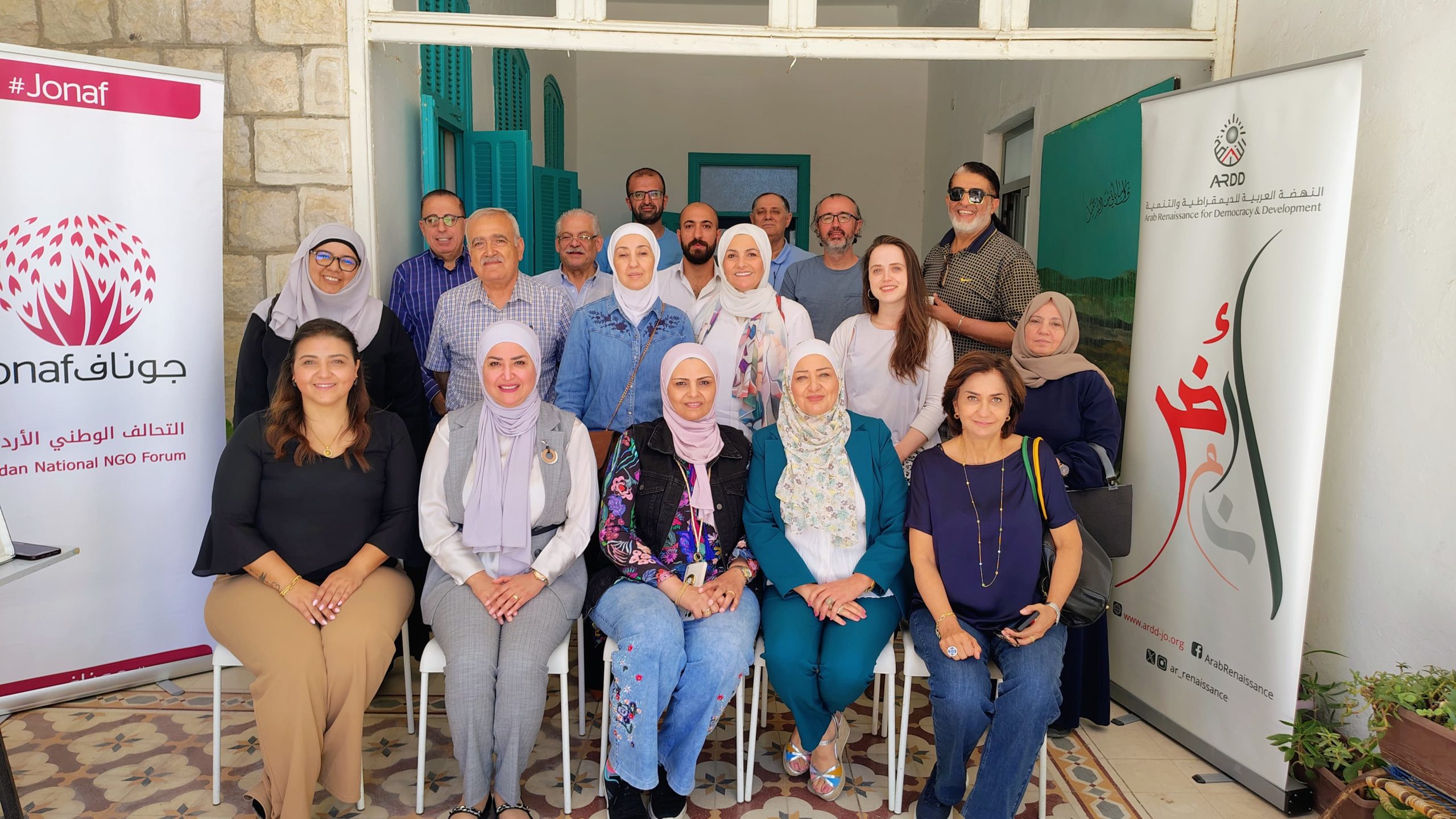Popular markets in Jordan are among the most vital economic and social spaces, connecting local communities while generating job opportunities and promoting economic empowerment for diverse groups, including refugees. In the face of mounting economic challenges, investing in and supporting these markets has become critical to advancing sustainable livelihoods and creating inclusive employment opportunities.
Against this backdrop, the Arab Renaissance for Democracy and Development (ARDD) organized a panel discussion on Friday, September 12, 2025, at Jara Market – Tajalla Association in Jabal Amman, as part of the Summer Bazaar and the wider Season’s Market initiatives. The discussion, held under the title “Popular Markets in Jordan: Toward a Sustainable Economic Model – Challenges and Opportunities”, brought together experts and researchers concerned with issues of the local economy and social development.
The session, which explored the current state, challenges, and opportunities for developing popular markets, is part of an ongoing study by ARDD’s Renaissance Strategic Center. The study aims to strengthen these markets in Jordan and provide practical recommendations to support their role in creating inclusive and sustainable livelihoods for both Jordanians and refugees.
The panel featured contributions from researcher and writer Dr. Kamal Mirza and journalist and researcher on poverty, development, and society Dr. Ahmad Abu Khalil, with researcher Khaled Jumaa from the Renaissance Strategic Center moderating the discussion.
Dr. Mirza emphasized: “Popular markets are social and cultural spaces that reflect the identity of local communities, while also generating job opportunities and empowering marginalized groups. Supporting them should go beyond infrastructure to include legislation and policies that encourage innovation and sustainability.”
Dr. Abu Khalil added: “Popular markets have a long history of social and cultural exchange. They are a mirror of people’s daily experiences and ways of life. Developing these markets requires a deep understanding of vendors’ needs and behaviors, and genuine dialogue between government, the private sector, and civil society to develop sustainable, practical solutions. This is essential to enabling markets to create real livelihood opportunities for local communities, including refugees, and integrate them into the local economy.”
Participants in the discussion highlighted the need for a clear definition and criteria for popular markets, whether through official recognition or flexible, community-based frameworks. They stressed that these markets often emerge as grassroots initiatives responding to local needs and should be recognized not only as sources of income but also as cultural and heritage spaces that preserve community identity.
The dialogue also underscored the importance of organizing markets through participatory approaches that engage all stakeholders—including the private sector—to ensure sustainability. Speakers emphasized that decision-making about popular markets must strike a balance between the vision of local communities and the perspectives of policymakers. They noted that planning and managing these markets is inherently complex, encompassing not only economic aspects but also social, developmental, security, and integrated urban planning dimensions.
Alongside the discussion, the Summer Bazaar—organized under the project “Future Forward: Unlocking Sustainable Local Opportunities”, with support from the EU Regional Development and Protection Programme for Lebanon and Jordan—offered a vibrant platform for entrepreneurs to present their creative ideas to a diverse audience, including local communities, civil society, the private sector, and international organizations.
The Bazaar showcased a wide variety of handmade products, ranging from artworks, accessories, clothing, and organic soap to homemade food. It celebrated the creativity of both Jordanians and refugees and featured entertainment activities for children of all ages. Vendors also gained valuable opportunities to network with associations, marketing platforms, and new clients, strengthening the sustainability of their businesses in the local market.
The event drew a large audience, with participants who had undergone training to enhance their market access and networking skills expressing their appreciation for such initiatives. As one participant noted: “The Bazaar was a wonderful opportunity to showcase our products, build partnerships, and collaborate with new outlets such as antique and handicraft shops. It boosted our confidence and encouraged us to expand our projects.”
Looking ahead, the Season’s Market will continue next winter with a new range bazaars. ARDD and the Jordan National NGO Forum (JONAF) reaffirmed the importance of exploring local livelihood opportunities, supporting startups in Jordan, and promoting sustainable economic initiatives.



